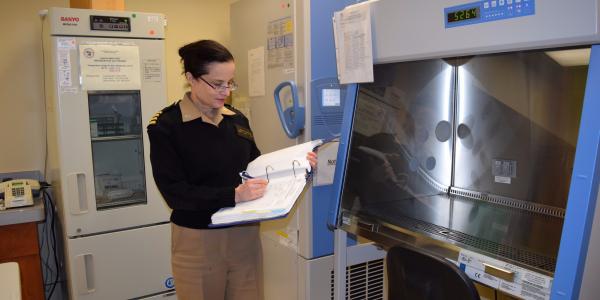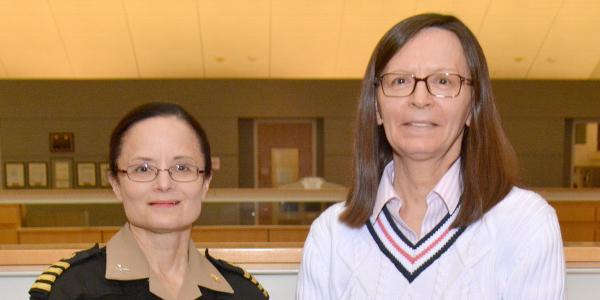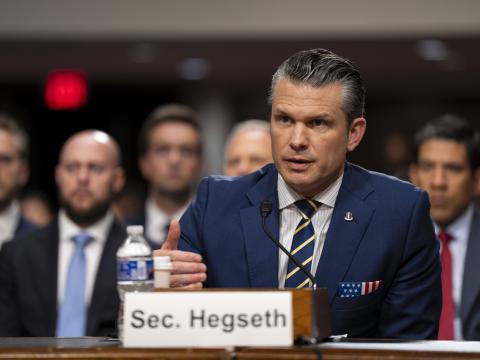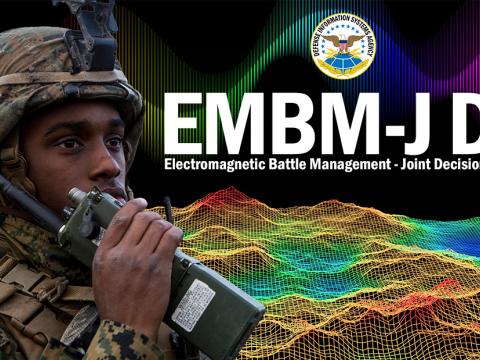Technology Leads One Step Closer to a Malaria Vaccine
U.S. military medical researchers are using radiation to close in on a vaccine to eliminate malaria, the top infectious disease threat to troops in affected areas, according to the Defense Department. The vaccine would replace preventive measures that are only partly effective against the mosquito-borne killer.
The illness sidelines military operations and is responsible for a greater loss of manpower than enemy fire during 20th-century conflicts in tropical regions, says Capt. Judith Epstein, USN. “People have been working on malaria vaccines for many decades, but we feel that we’re finally getting much closer to having an effective vaccine,” says Capt. Epstein, clinical director of the Naval Medical Research Center’s (NMRC’s) Malaria Research Department. She leads a joint malaria research venture by the NMRC and the Walter Reed Army Institute of Research (WRAIR), co-located in Silver Spring, Maryland.
Four years after U.S. researchers reported a breakthrough in the development of a malaria vaccine, they have just begun phase two of a three-phase clinical trial for eventual vaccine approval by the Food and Drug Administration (FDA). They are developing a highly effective vaccine not only to prevent malaria in warfighters and travelers, Capt. Epstein says, but also to reduce mortality rates and even to eradicate the parasitic disease among people.
Globally, malaria killed an estimated 429,000 people in 2015, with most deaths occurring in Africa, according to last year’s World Malaria Report. The annual document, issued by the World Health Organization in December, draws on data from 91 countries and areas with ongoing malaria transmission. People who contract malaria typically become very sick with high fevers, shaking chills and flu-type symptoms, according to the Centers for Disease Control and Prevention.
As Capt. Epstein points out, the infections take down troops more than just about any other threat. An outbreak of Plasmodium falciparum malaria, for example, struck about 36 percent of a 225-man unit of Marines that deployed in 2003 to Liberia for a peacekeeping mission, she says. The outbreak resulted from underuse of personal protective measures and inadequate adherence to chemoprophylaxis, or the use of drugs to prevent disease.
High-stress environments are not conducive to precautionary medicine approaches, she continues. Troops can forget to take their anti-malaria drugs or neglect to use insect repellent, permethrin-treated clothing or bed netting. “If you’re not very strictly adhering to those, you can quickly have a situation where people are developing malaria,” says Capt. Epstein, who began her civilian medical career as a pediatric infectious disease specialist.
That makes a vaccine even more appealing. Although FDA approval of a vaccine might be three or four years away, advances continue. Military clinical investigators have partnered with biotechnology firm Sanaria of Rockville, Maryland, to test the company’s radiation-attenuated Plasmodium falciparum (Pf) sporozoite (SPZ) vaccine for malaria.
The vaccine includes parasites weakened by radiation to generate a strong immune response, but it does not cause disease. Clinical trials in 2011 to assess the PfSPZ vaccine demonstrated that when administered intravenously, it protected all six volunteers against a controlled human malaria infection. For the first time, researchers had demonstrated a greater than 90 percent protection rate, according to a paper published in January in JCI Insight, a peer-reviewed biomedical research journal. The work improves on the radiation process discovered in the early 1970s and was successful with different organisms, Capt. Epstein says.
The PfSPZ vaccine protected clinical trial volunteers against two strains of Plasmodium falciparum malaria for a few weeks. “What we’re working on now is being able to extend that protection to at least six months and to be able to protect against all different strains of malaria. It’s a very exciting time for malaria. I have nicknamed it the golden age,” says Capt. Epstein, who joined the Navy in 1998 at age 44.
She attended Columbia University first, and then Harvard Medical School, where she completed a pediatric residency before sliding into a pediatric infectious disease fellowship. “I was very determined to work on something that would have a very strong global impact,” says Capt. Epstein, 63. That drive guided her to the NMRC. “I saw there was this big mission focus to develop a malaria vaccine. And I thought immediately: This is the place I’ve been looking for.”






Comments